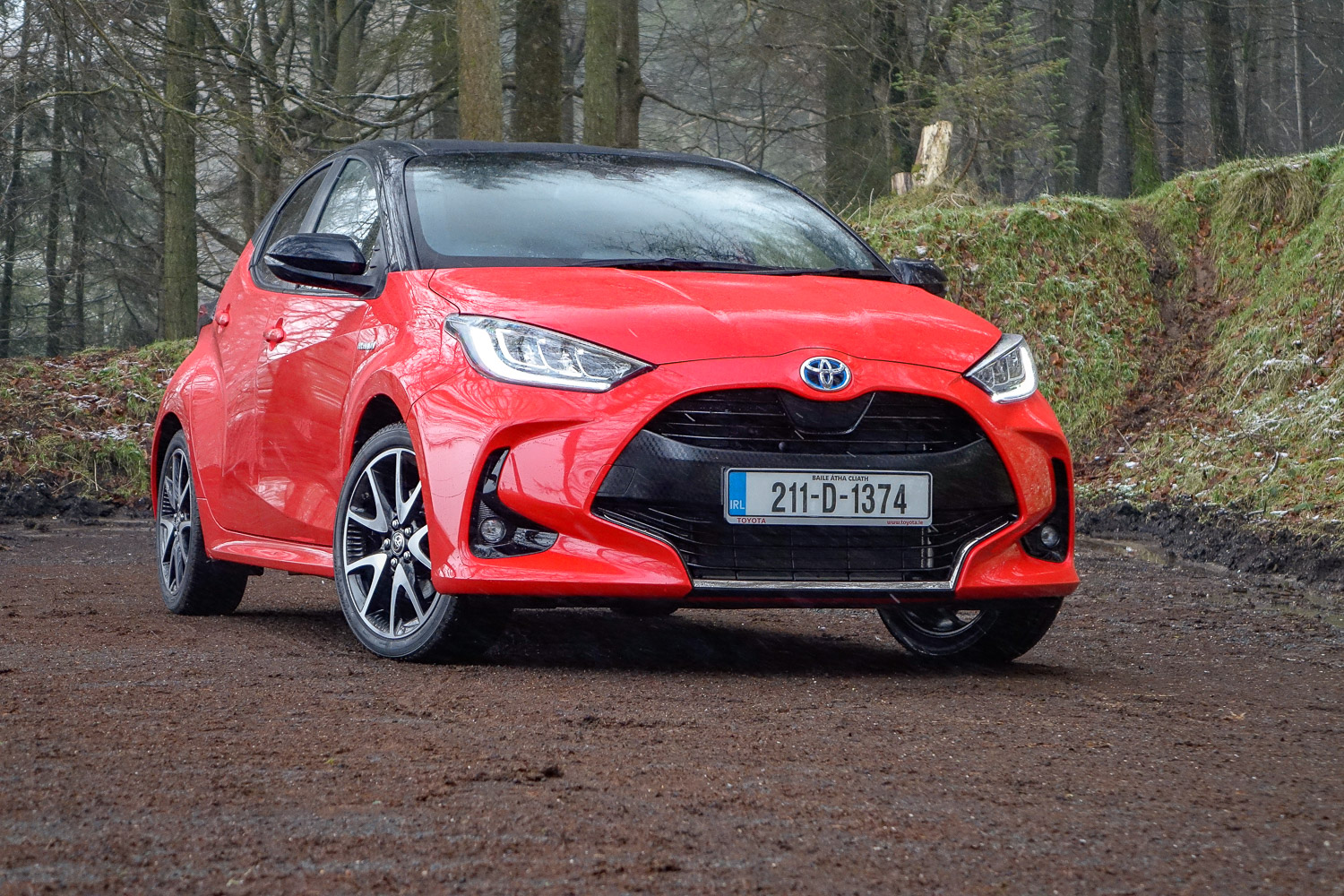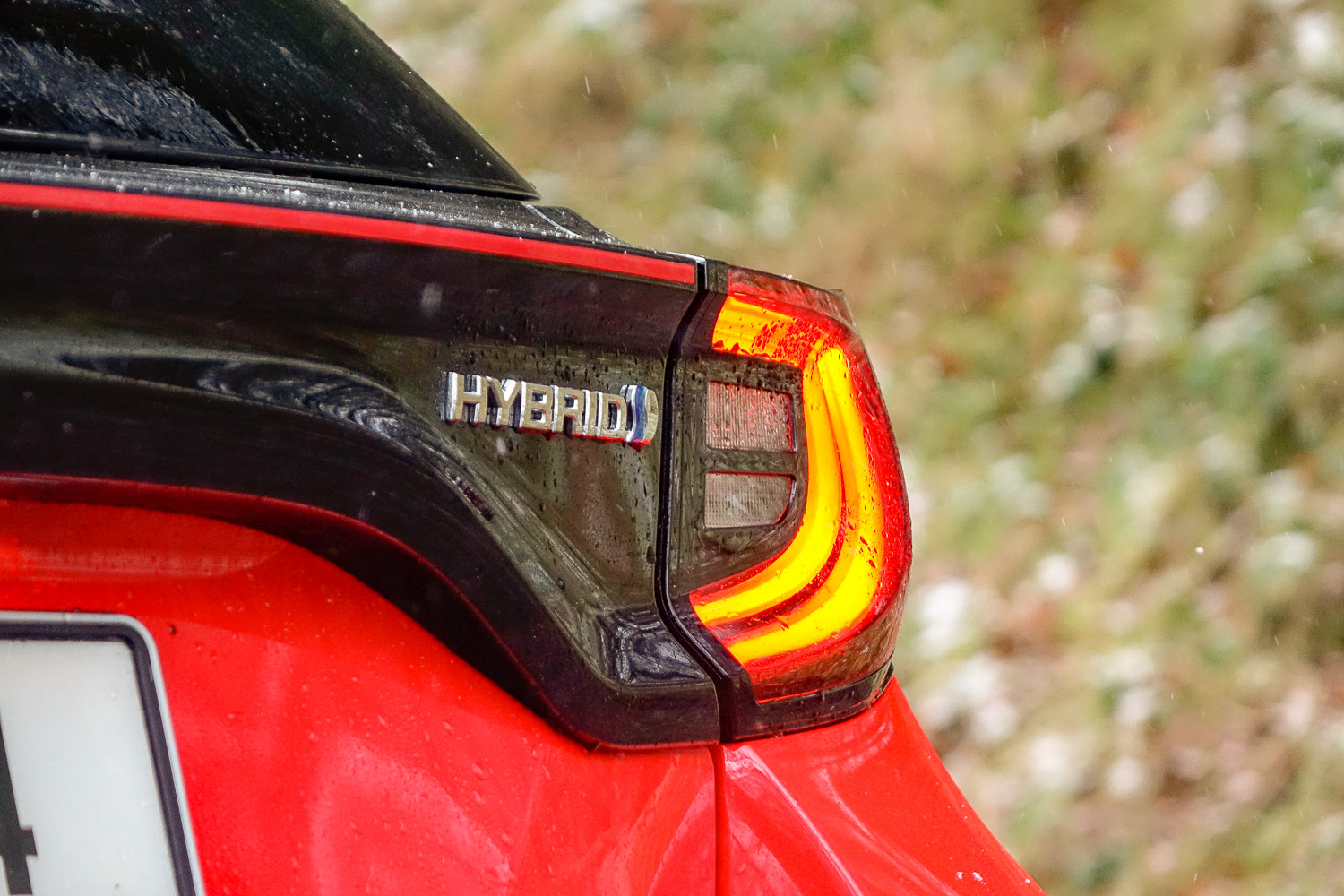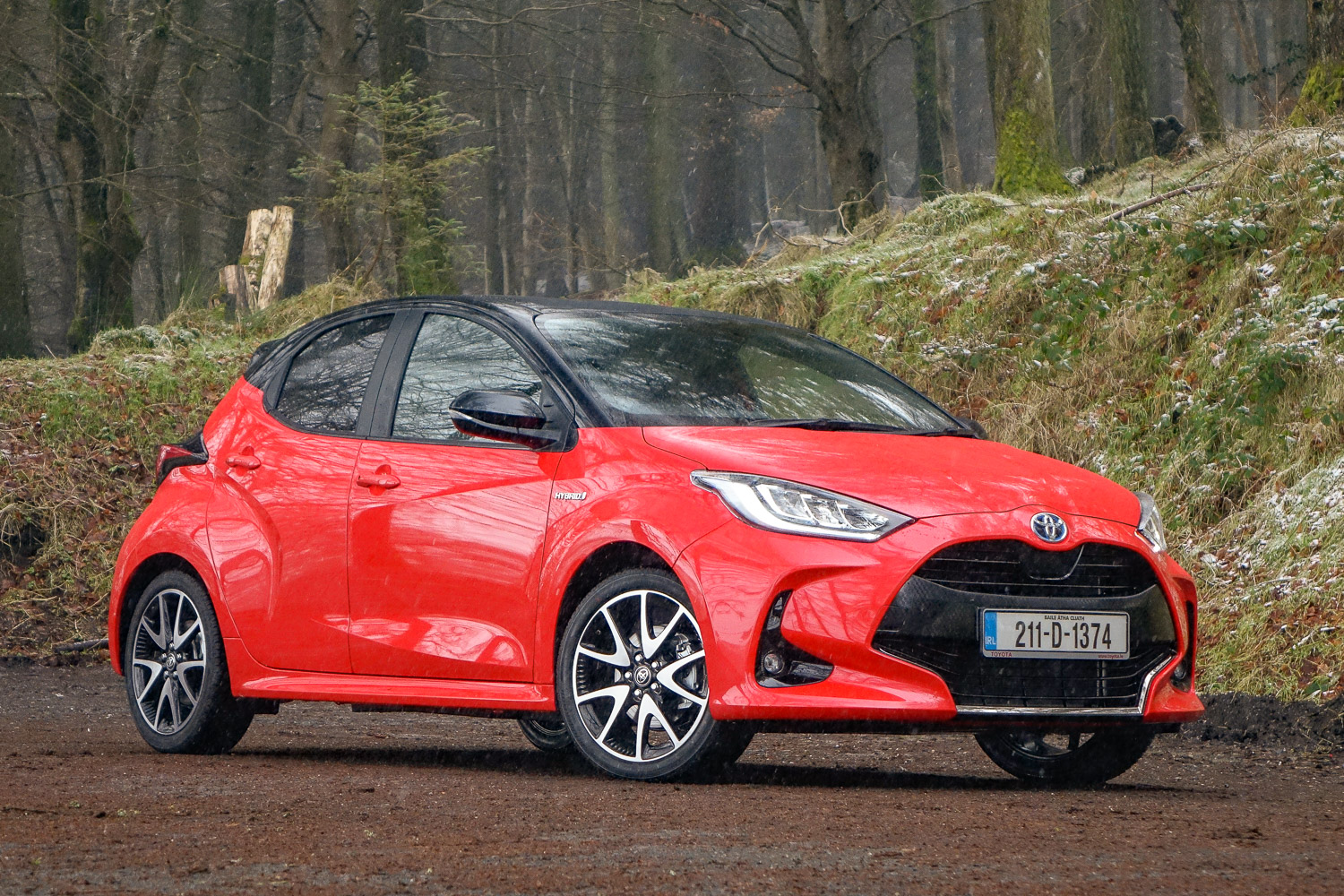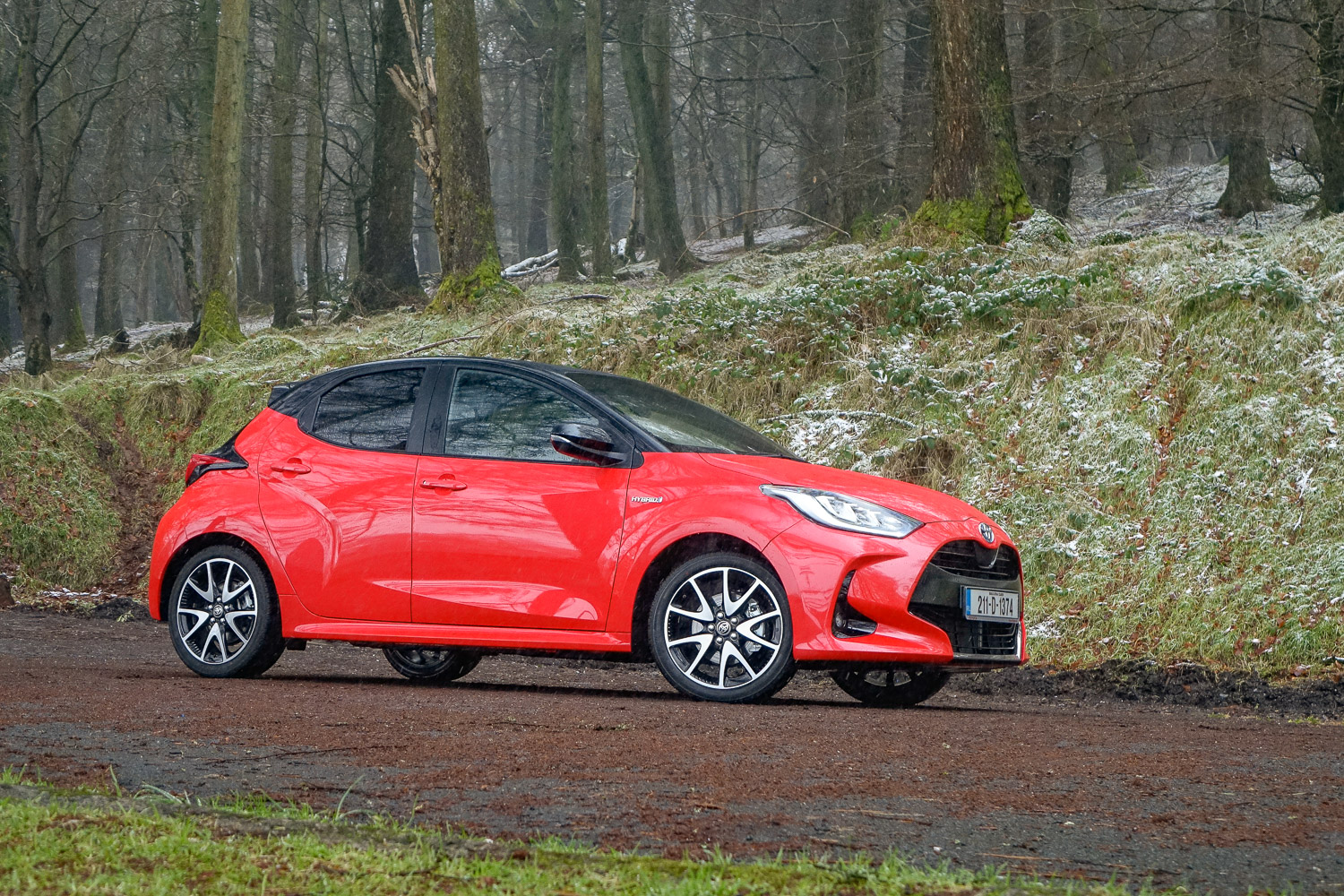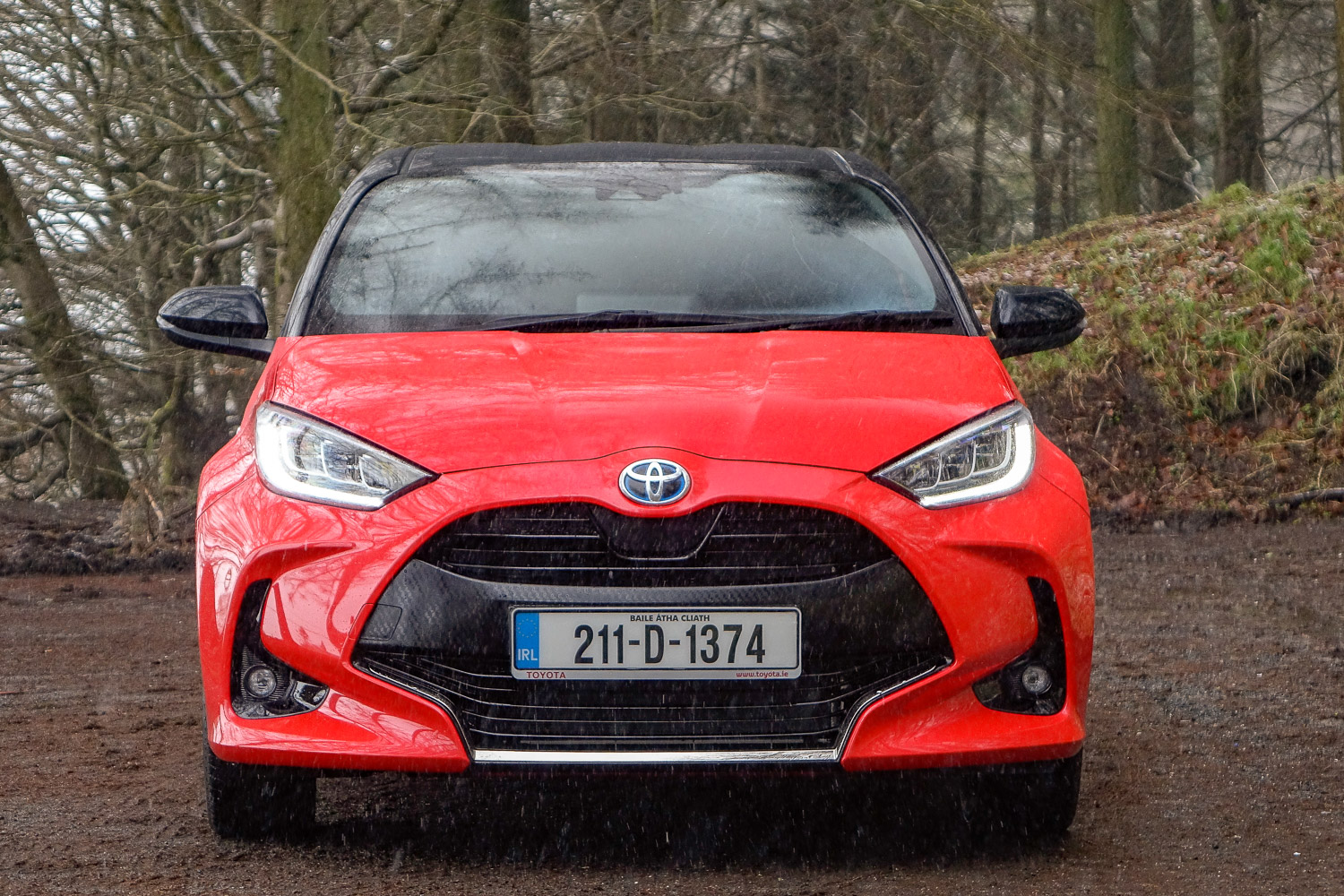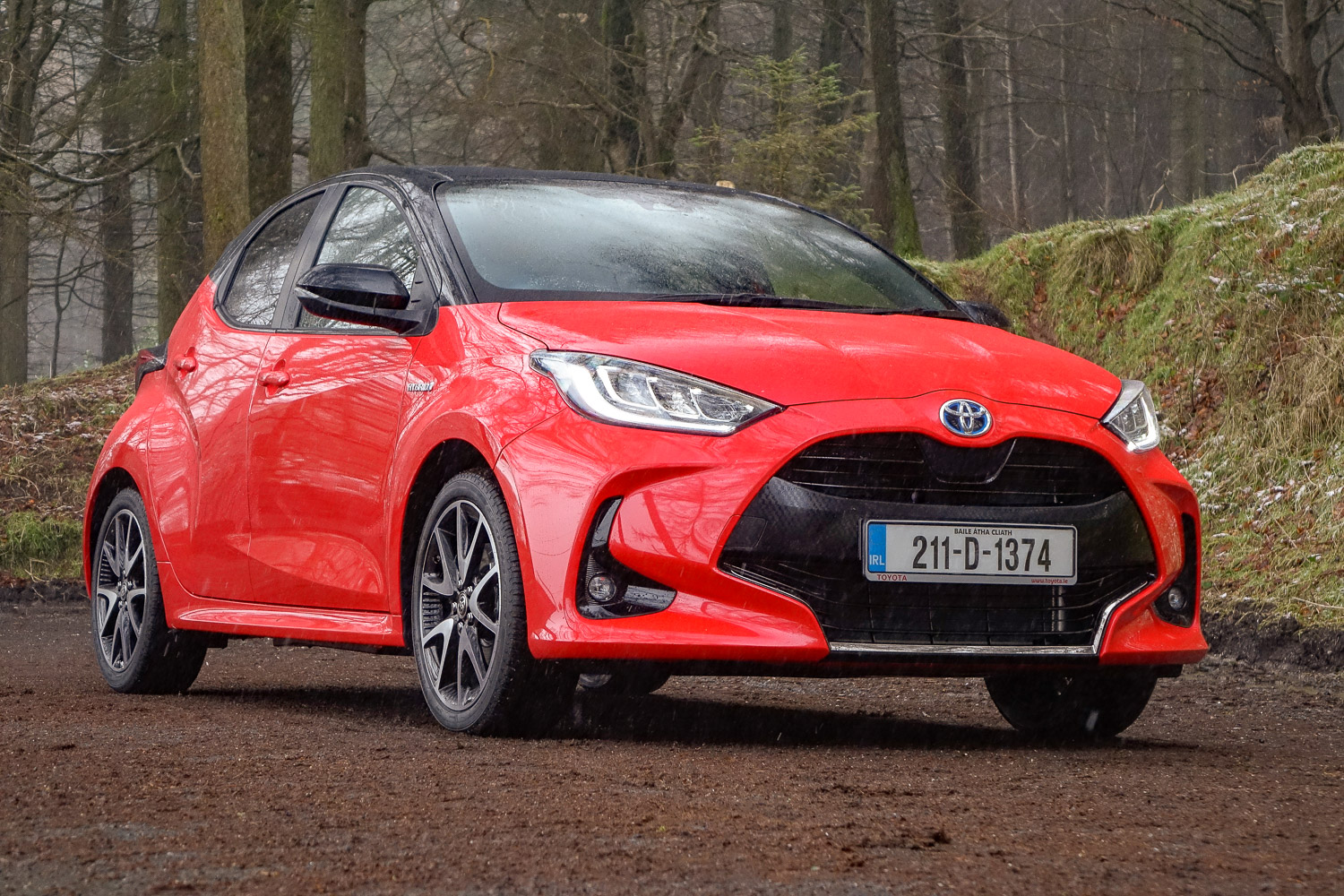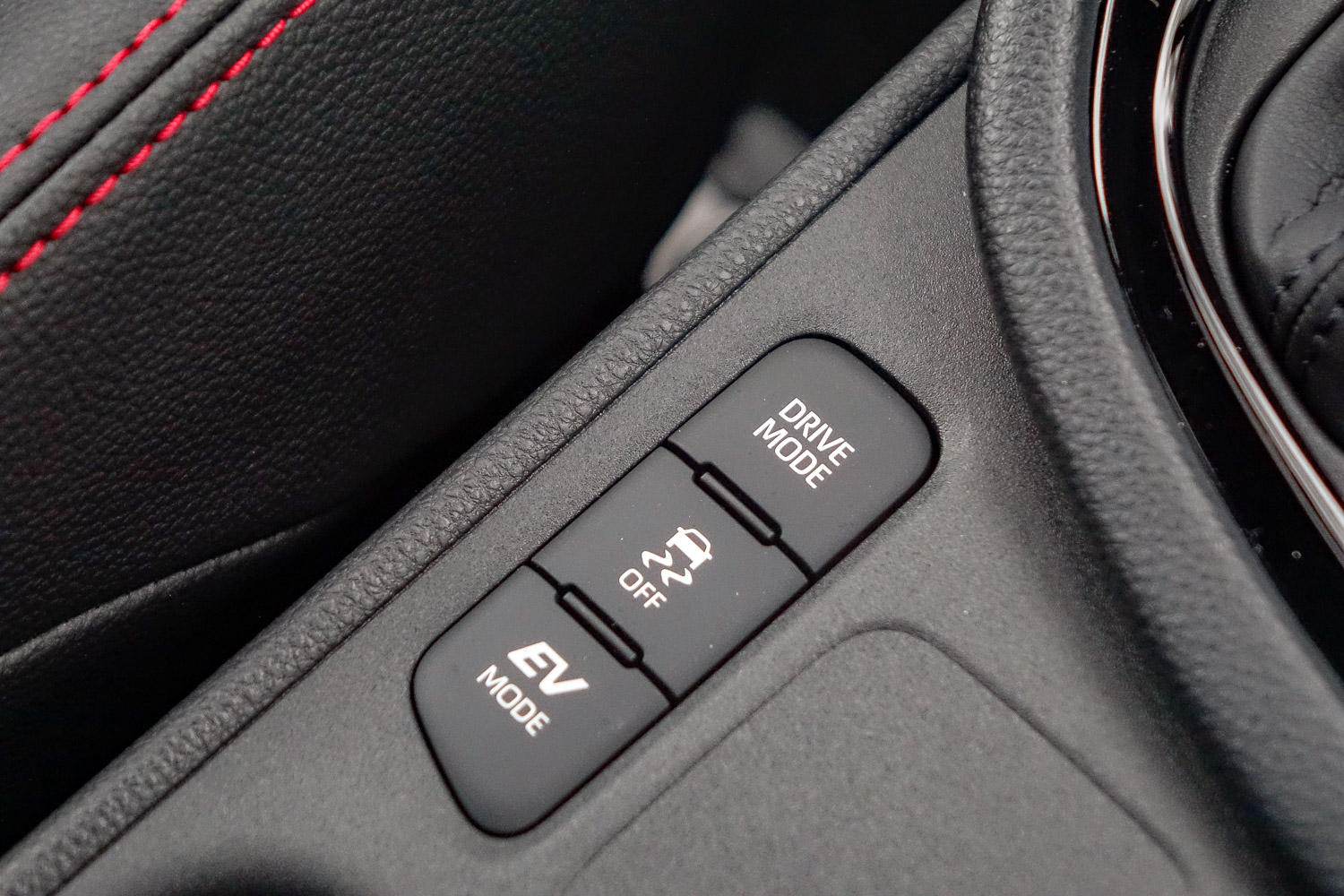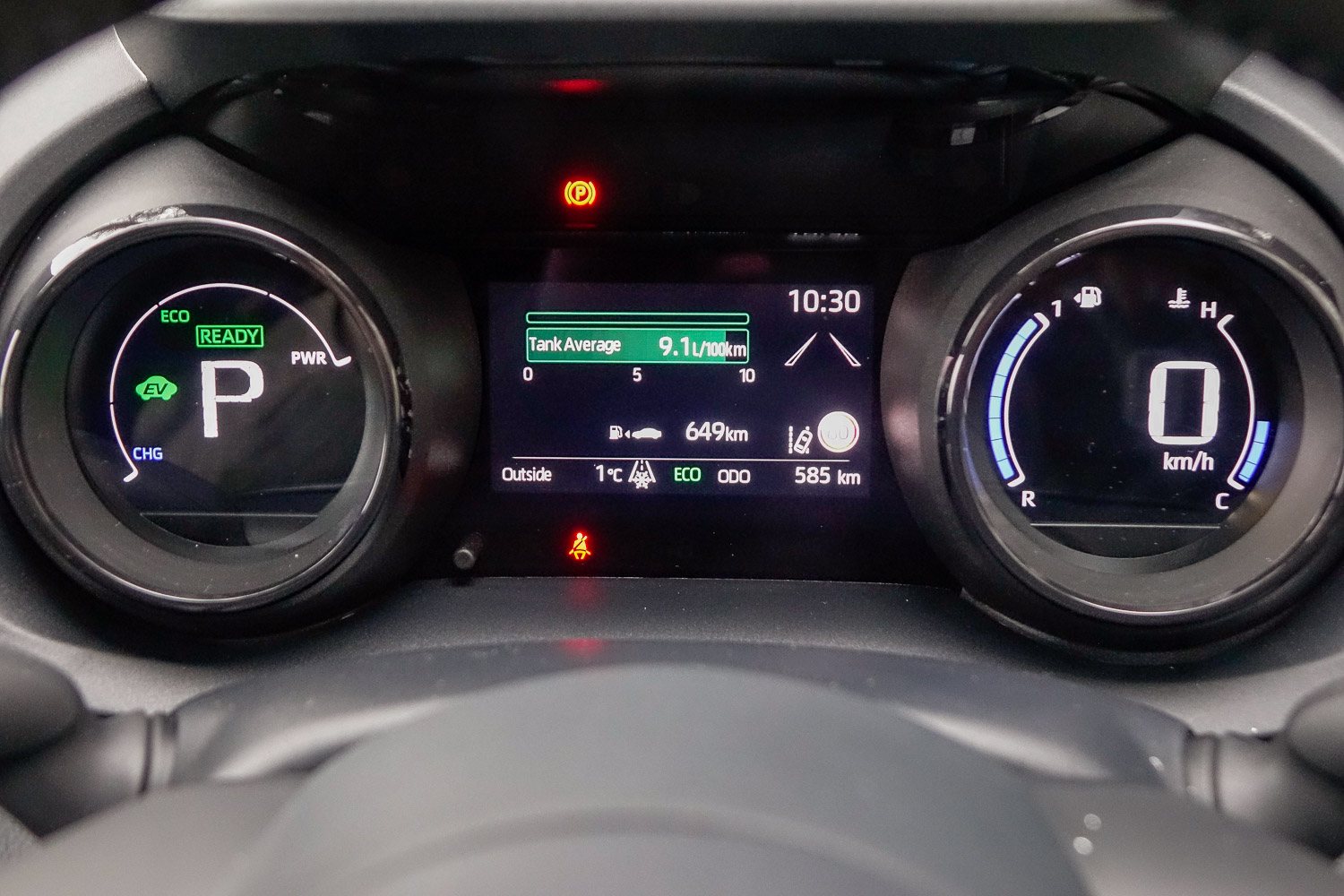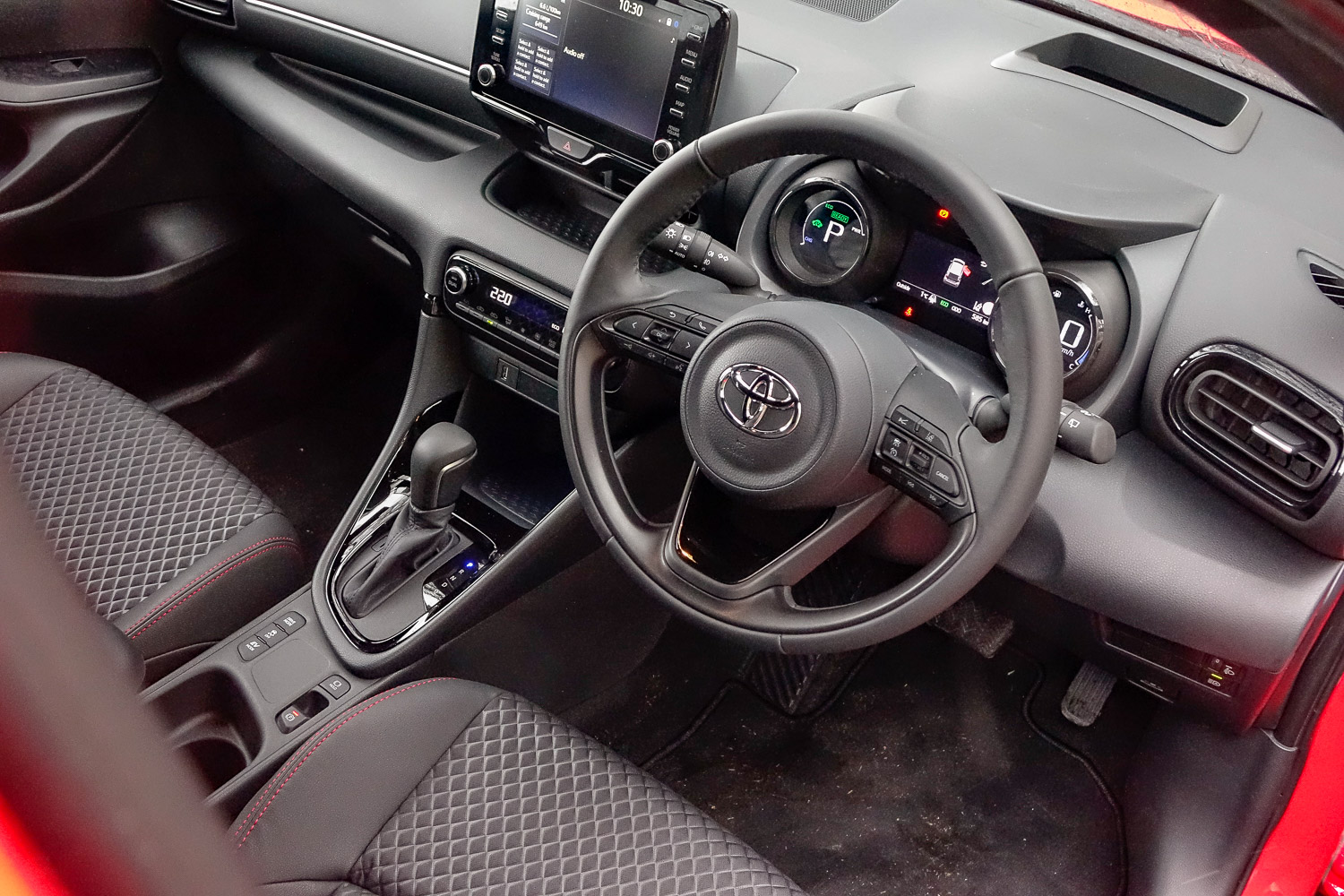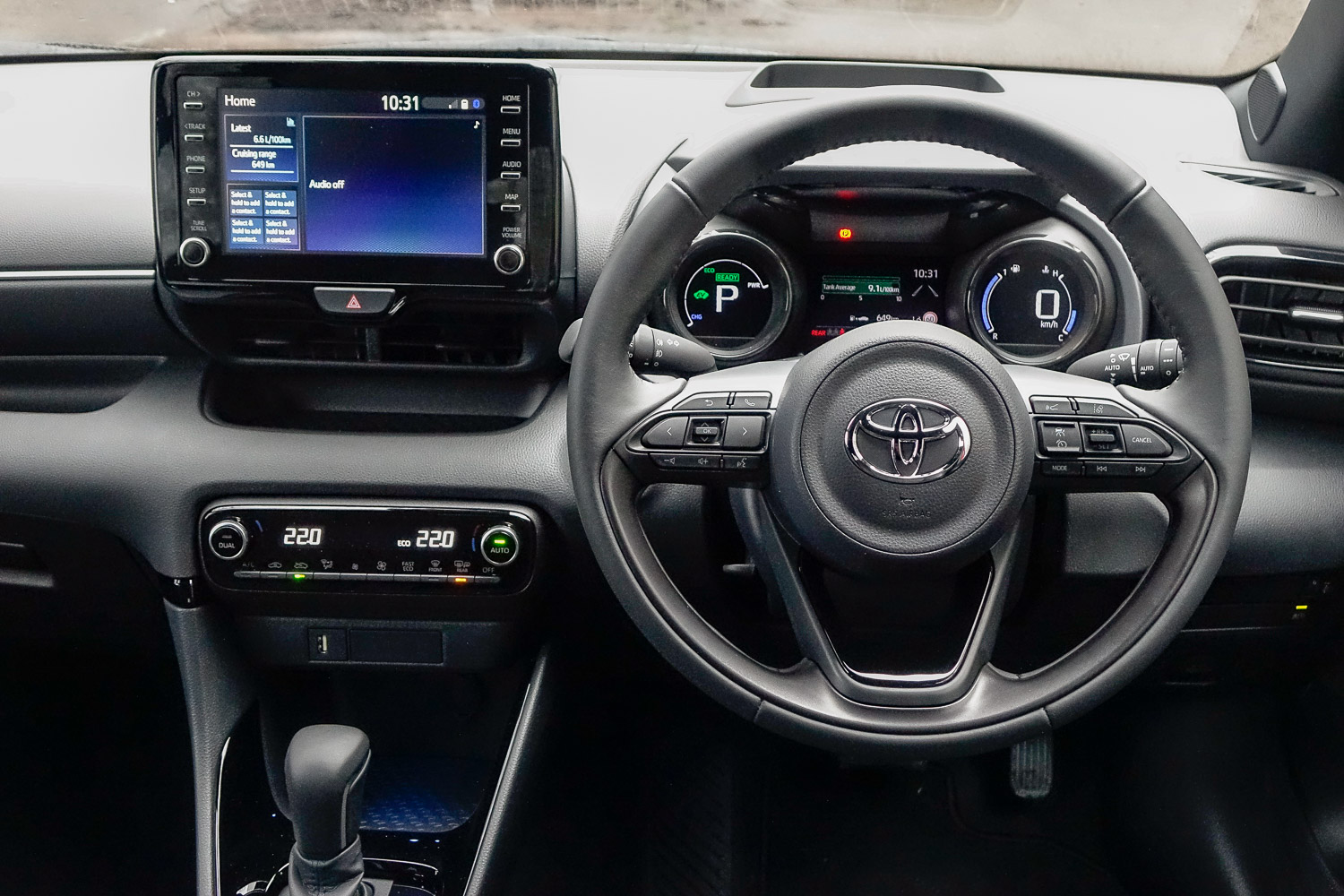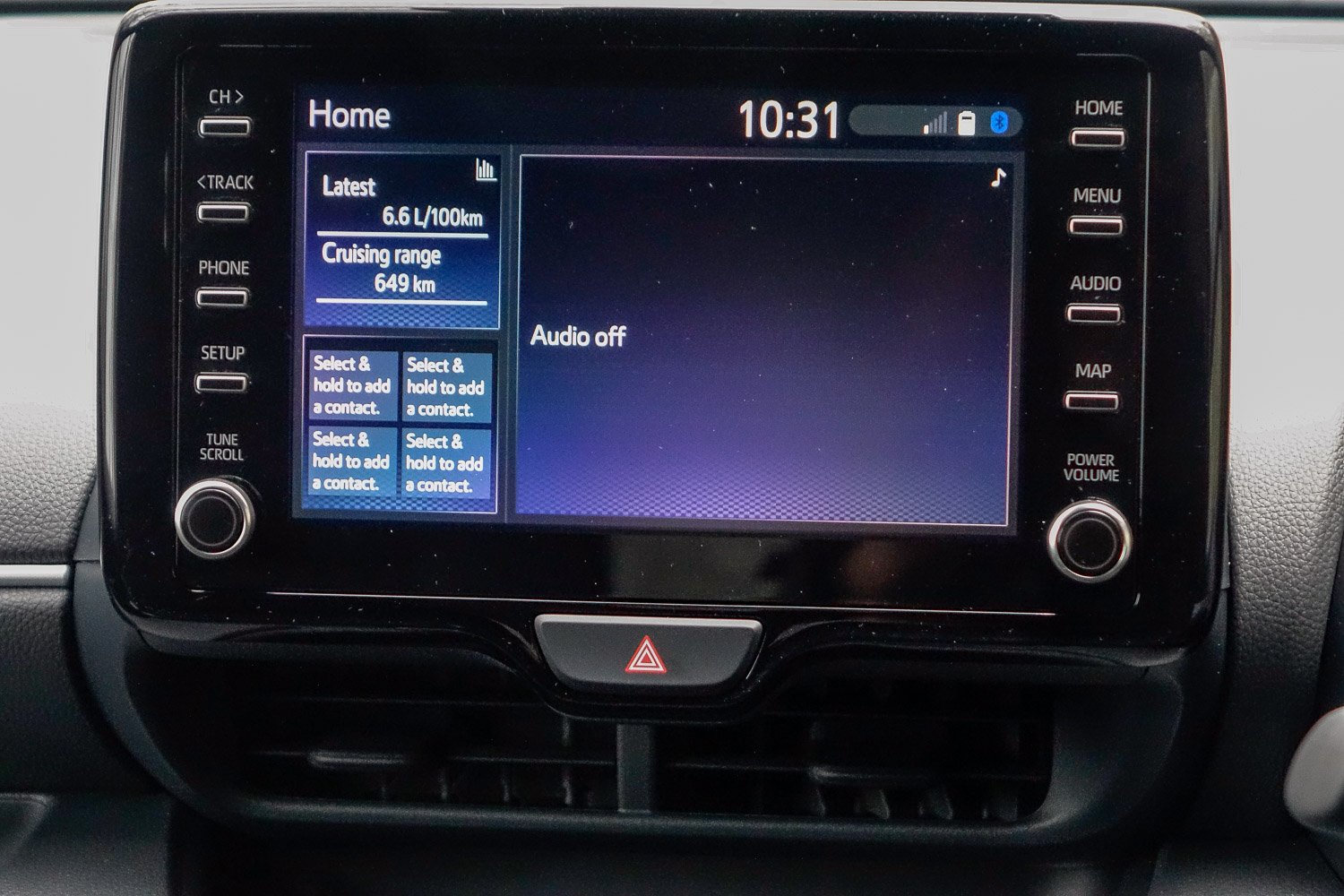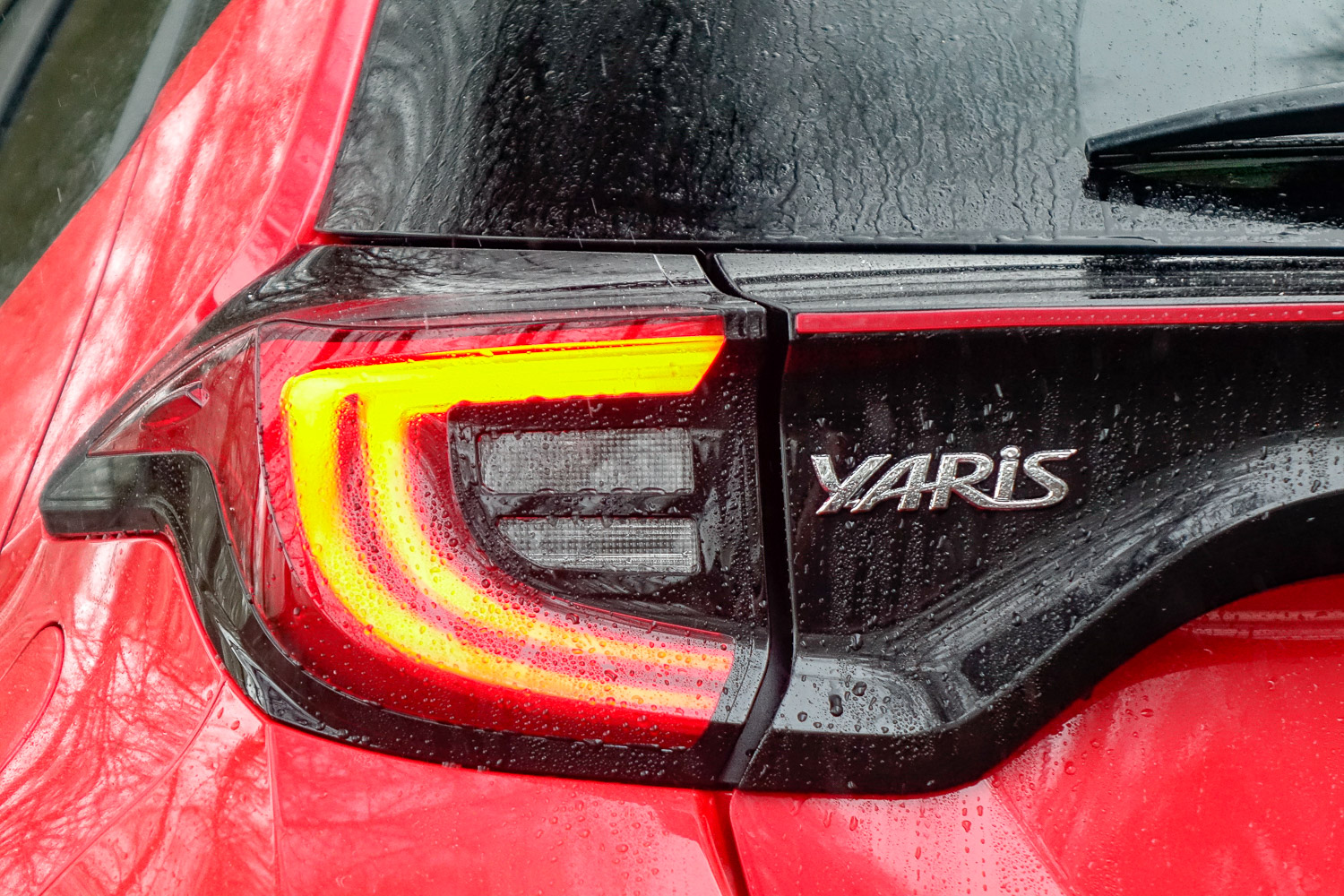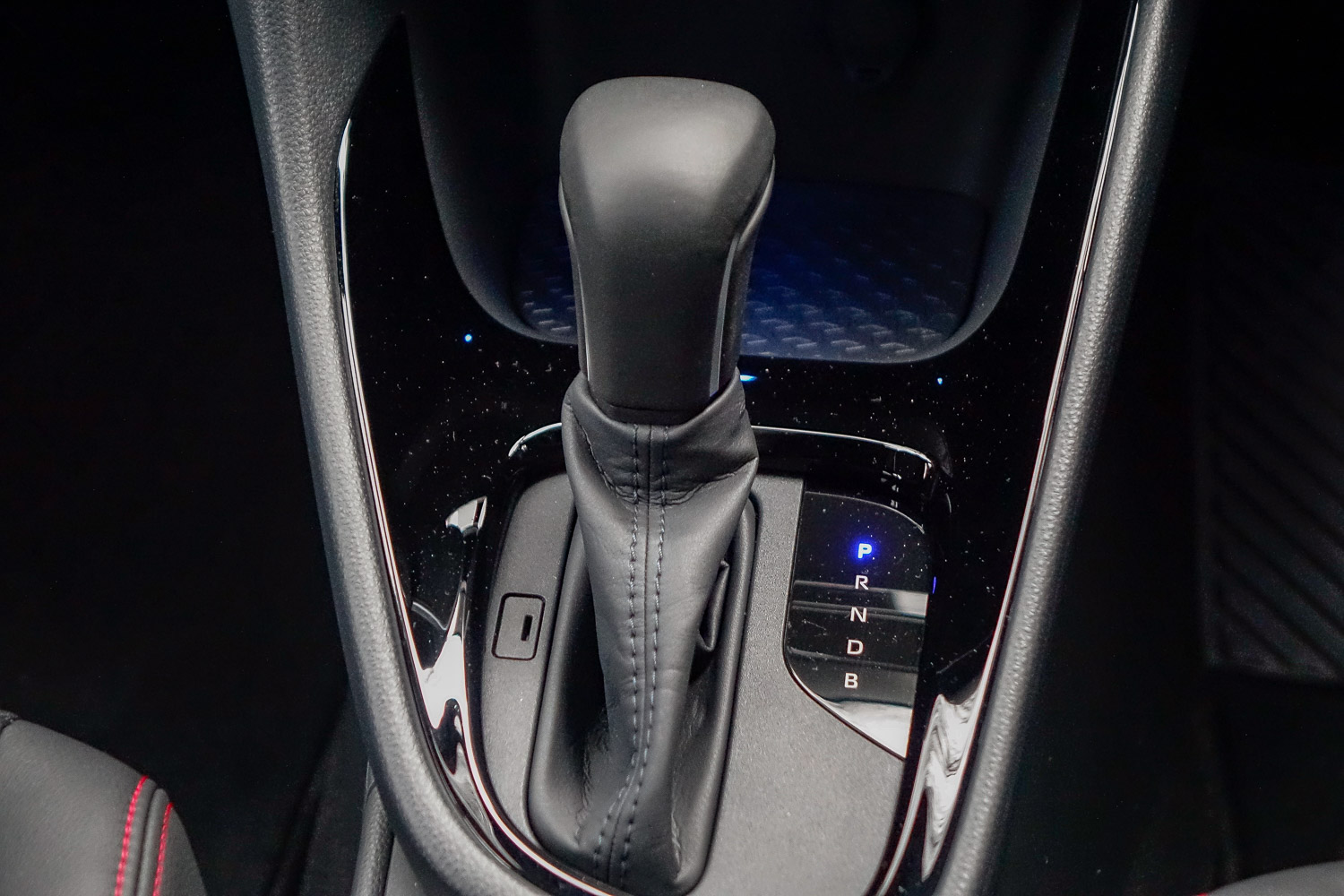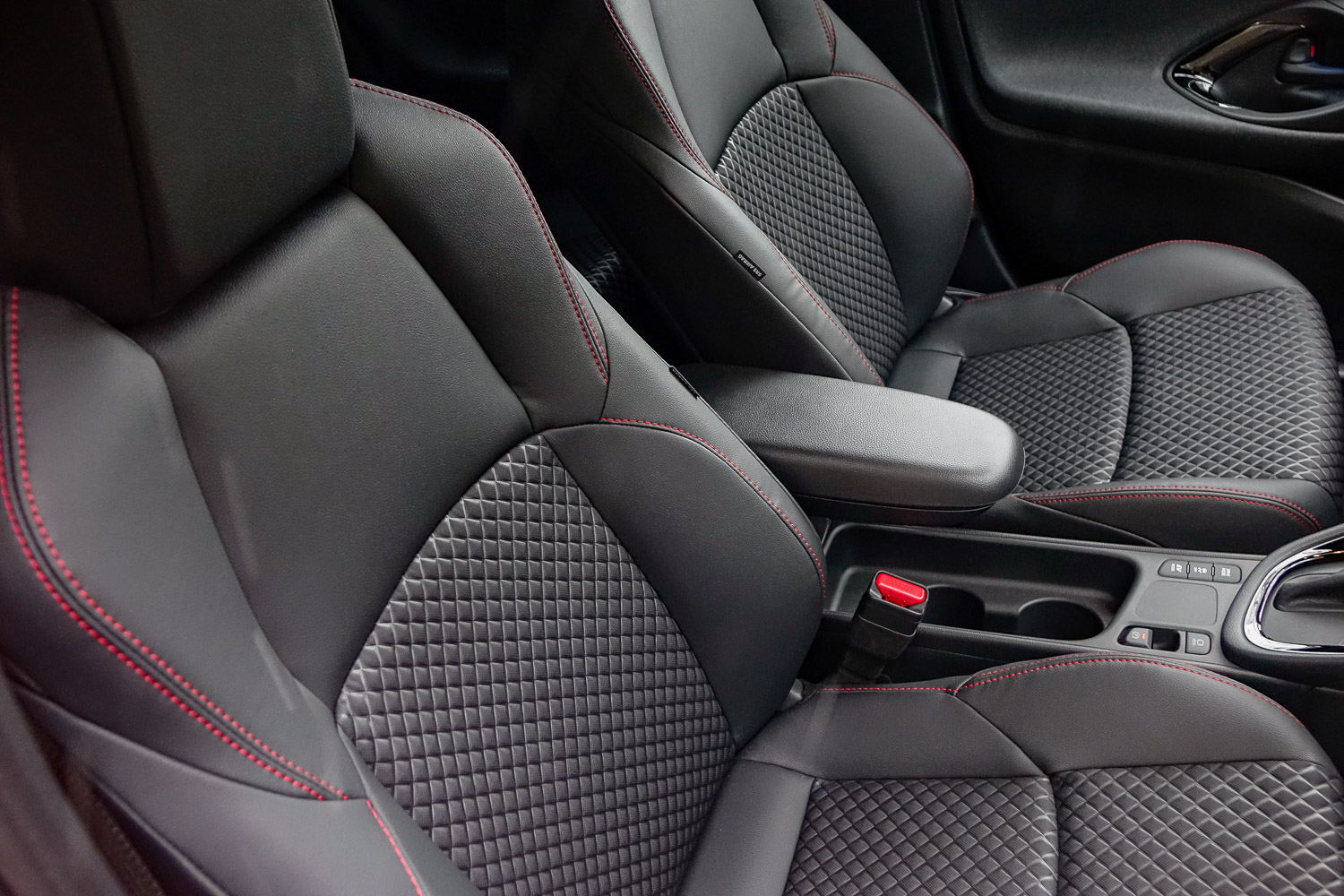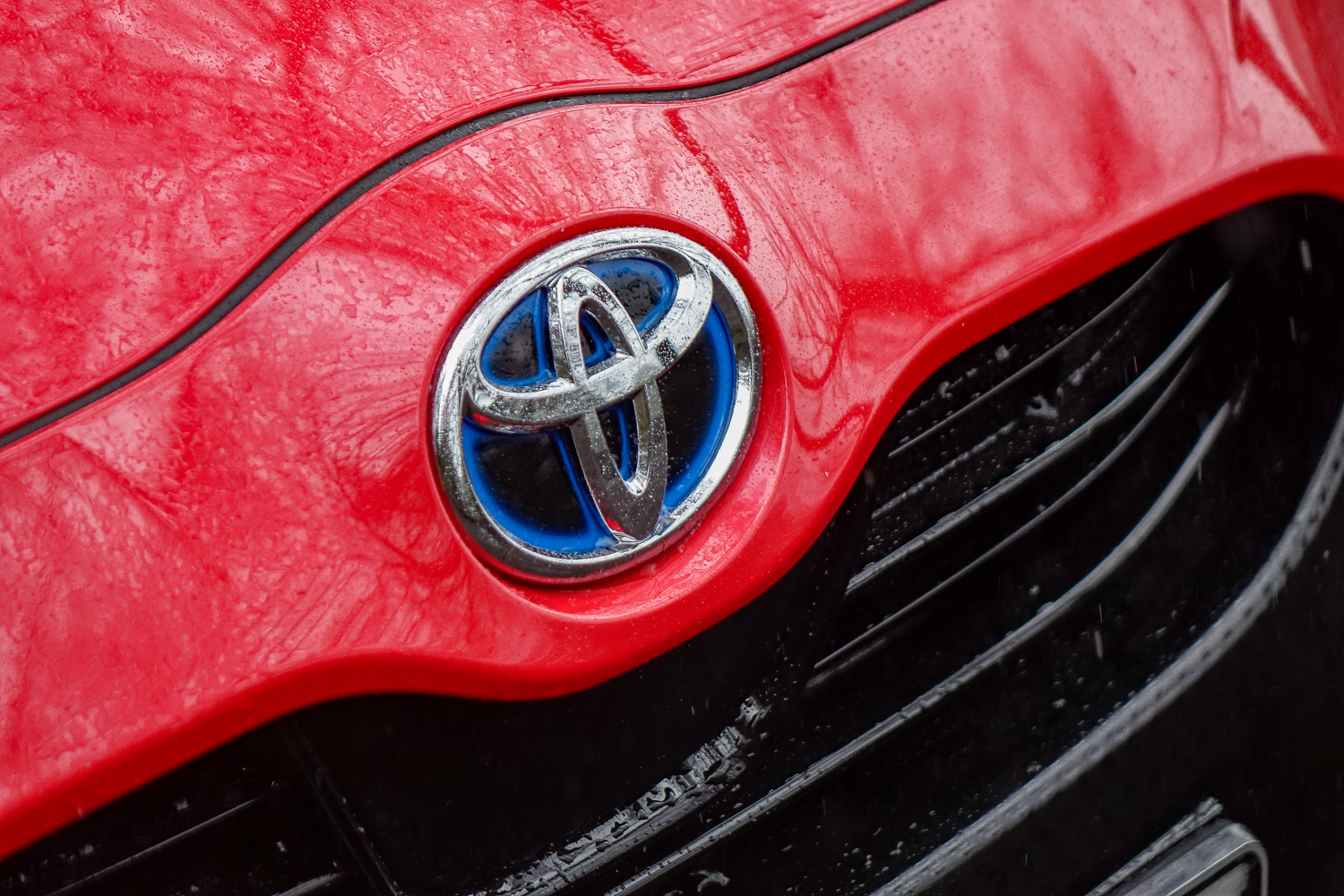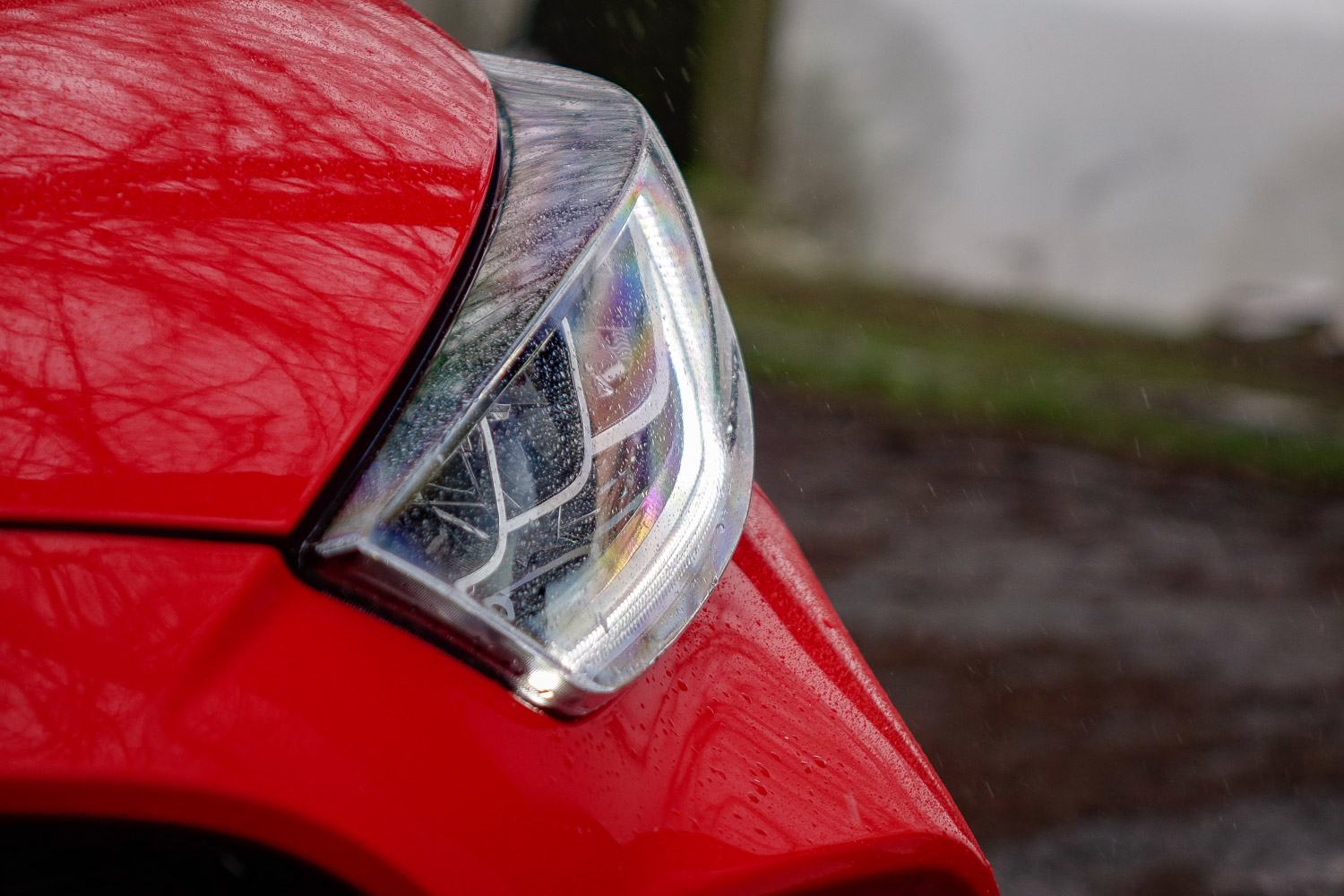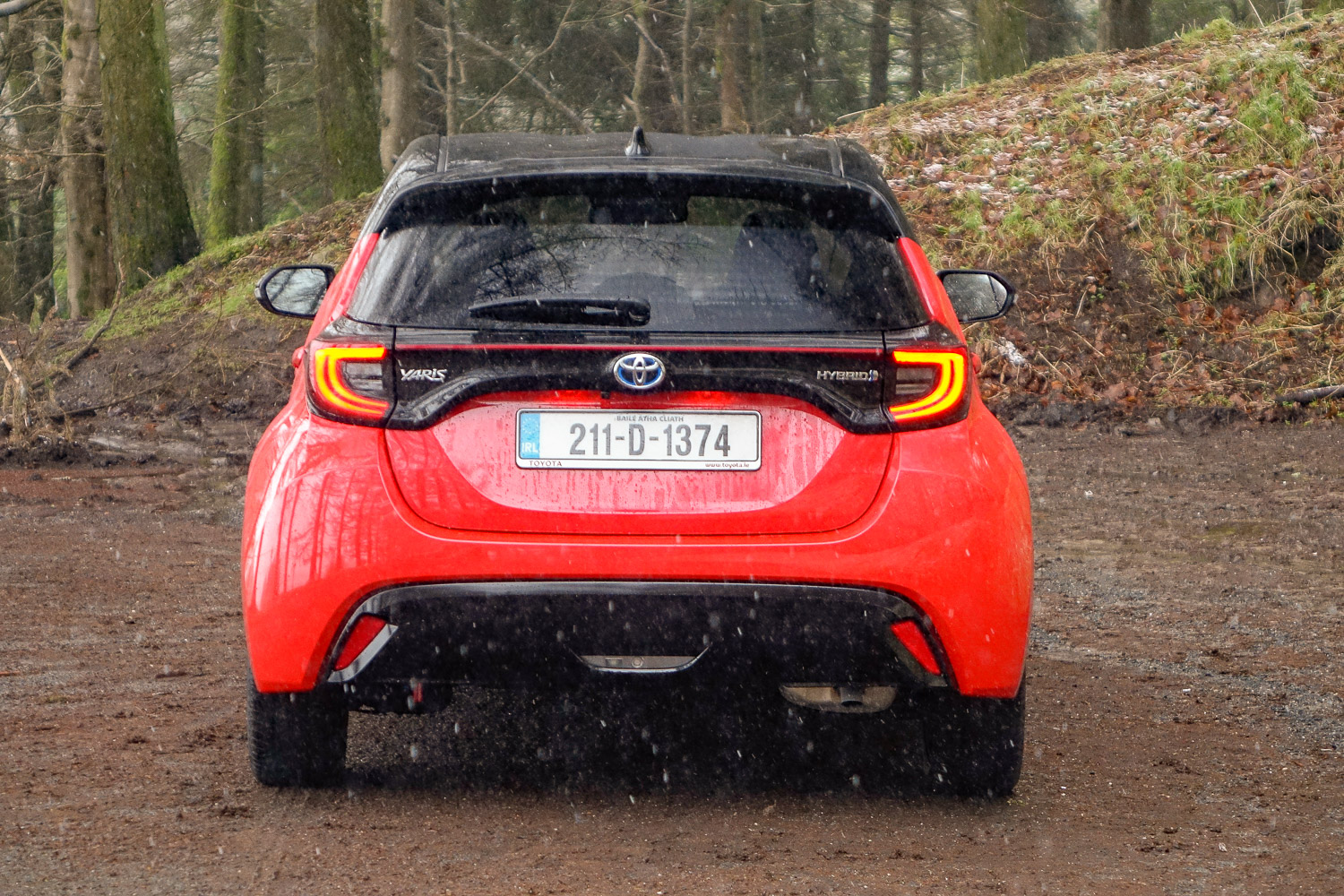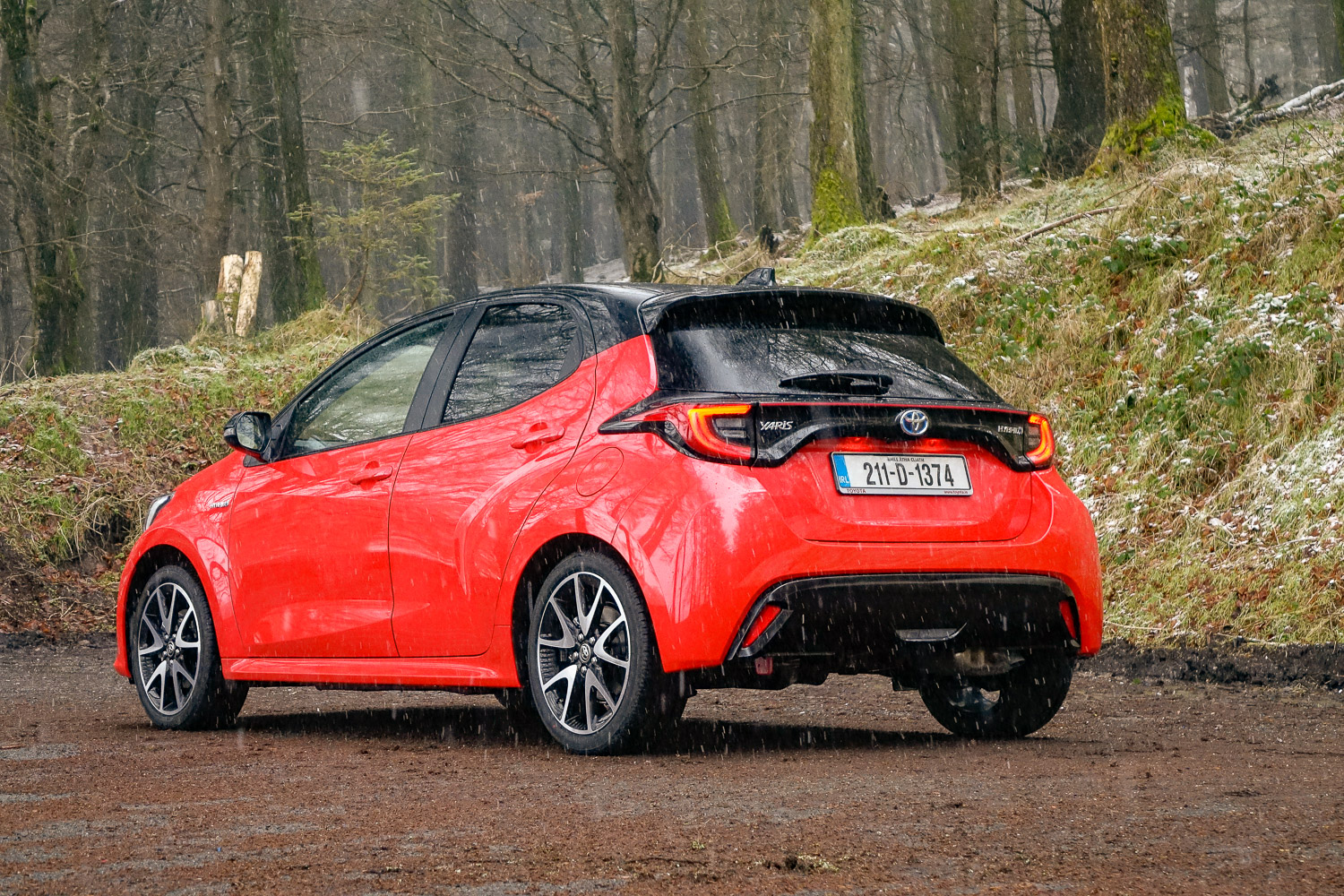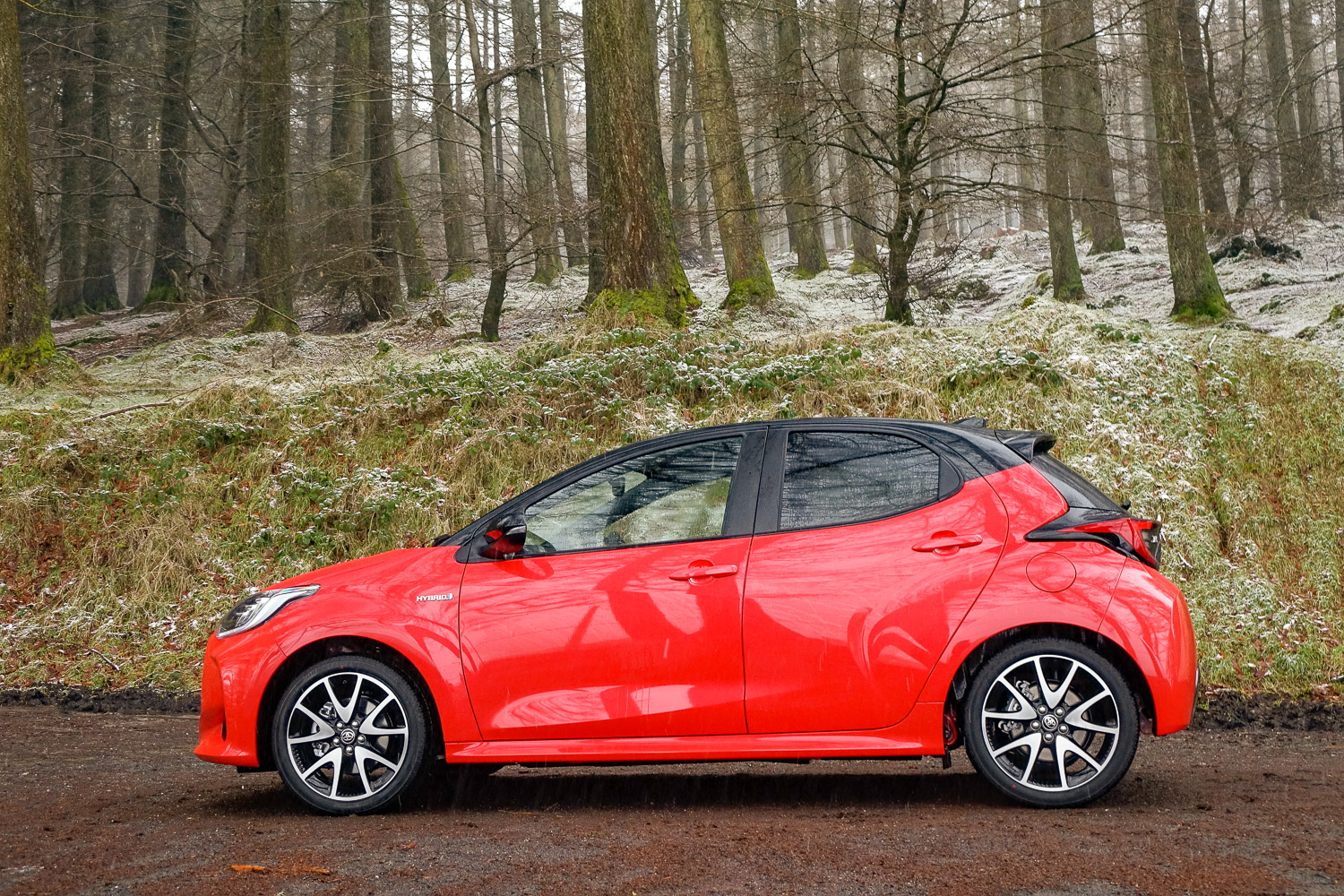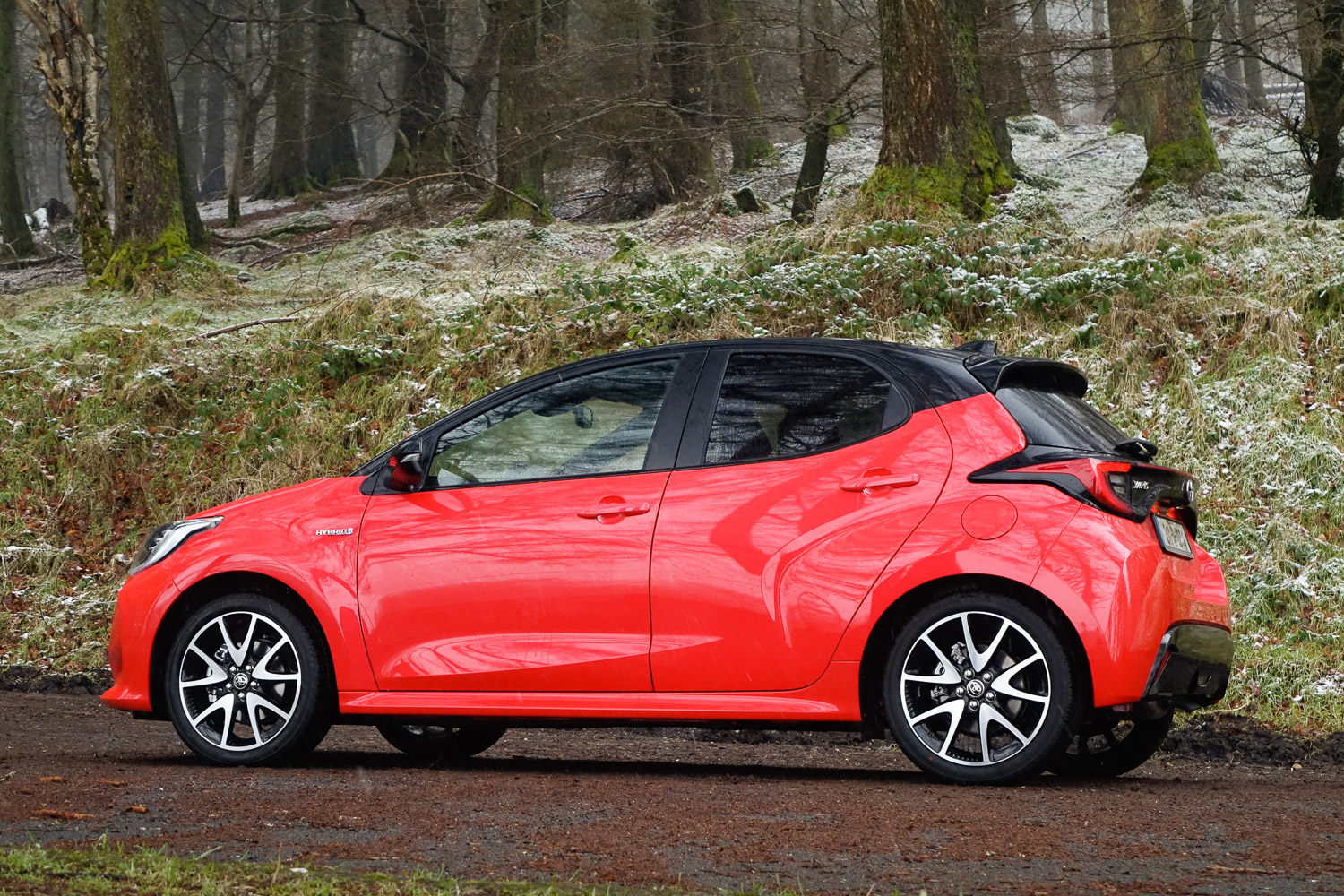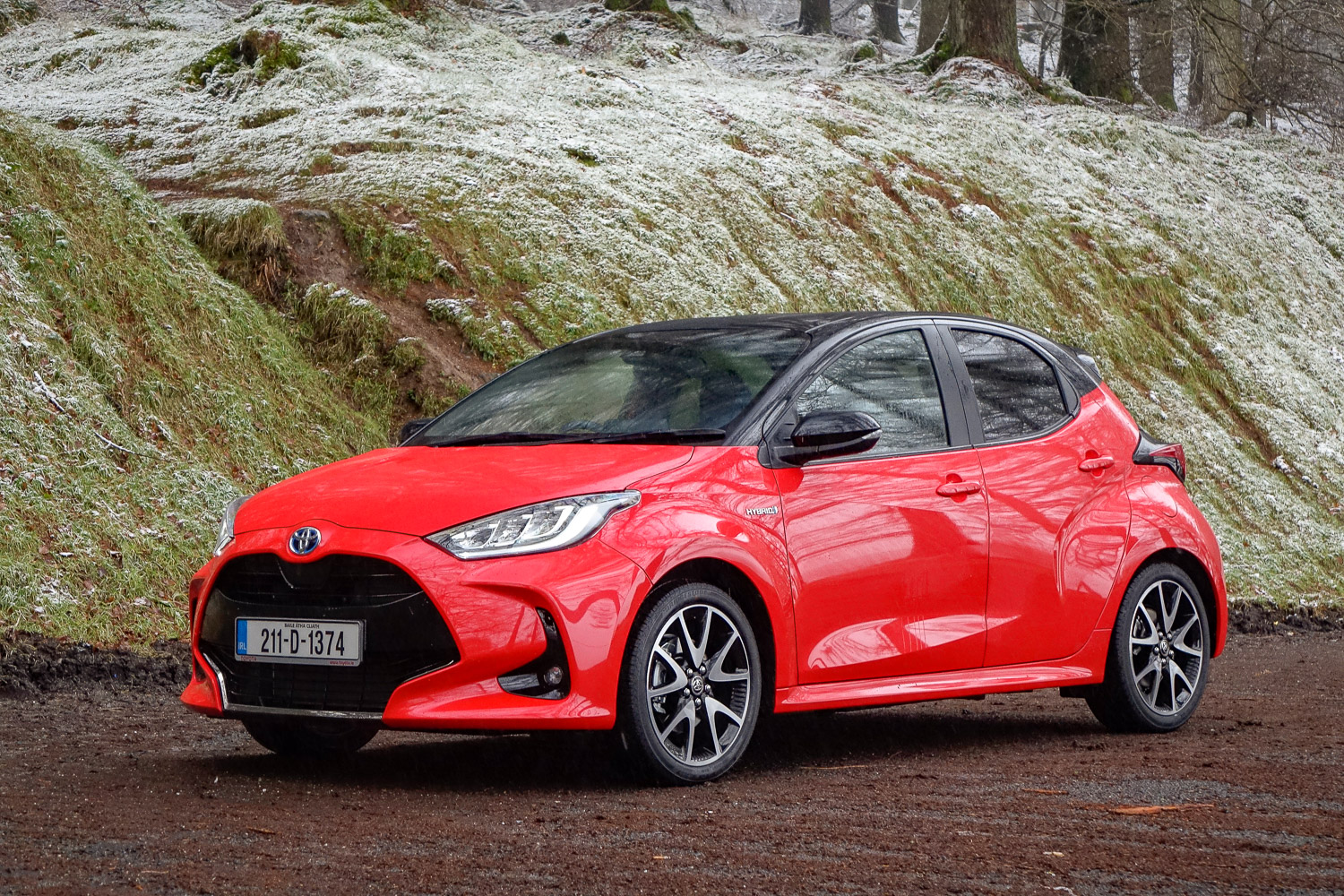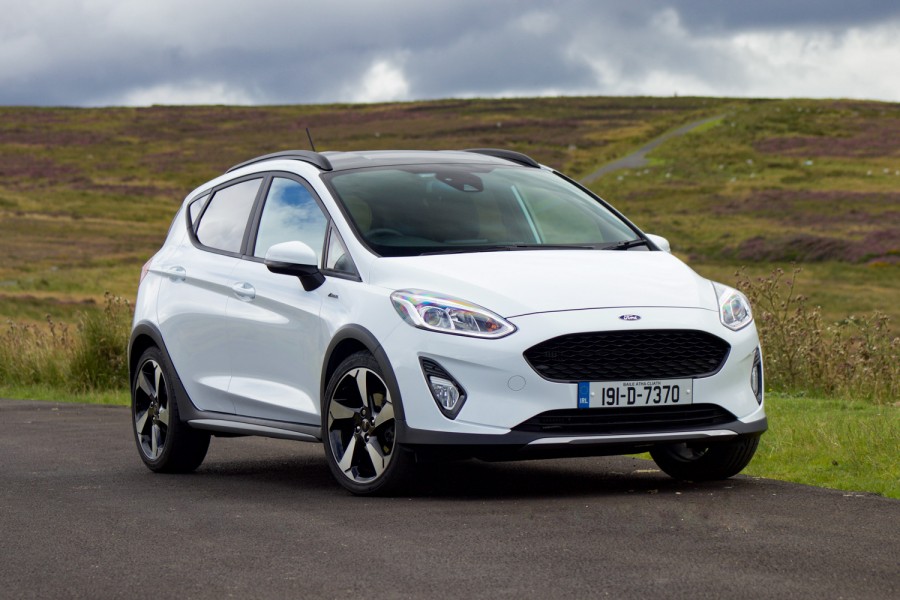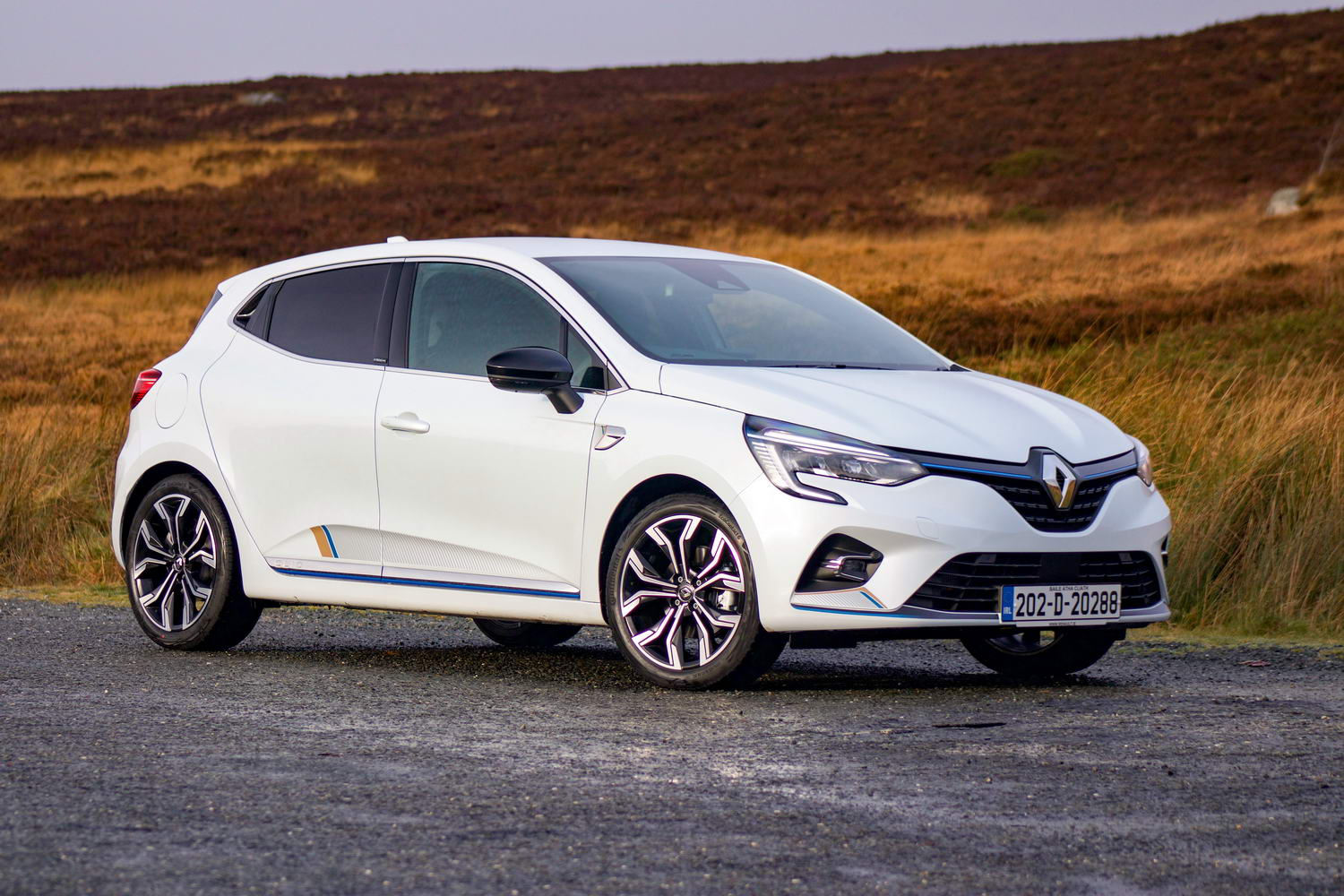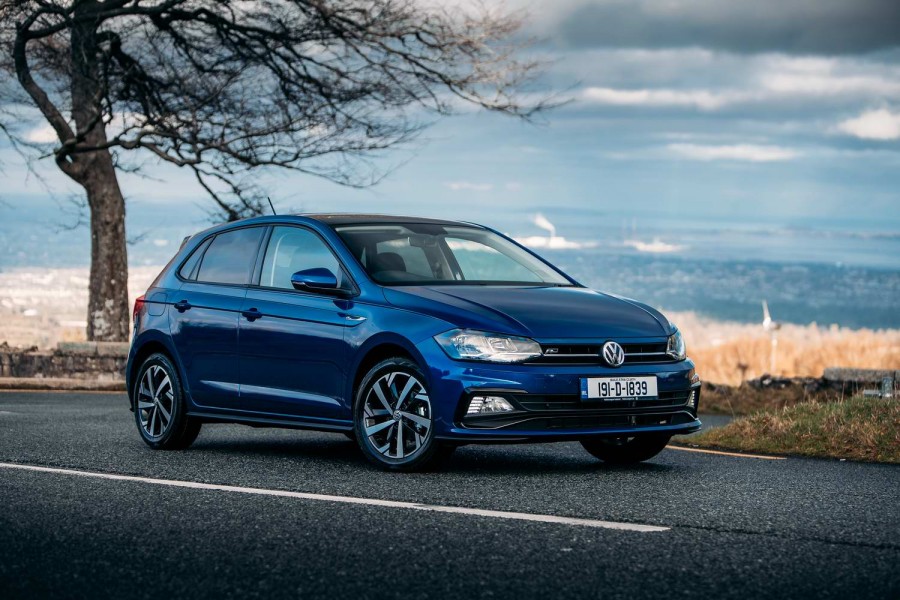What are you driving?
I'm driving what should be one of the most sensible vehicular purchases of 2021 - the Toyota Yaris Hybrid. This is the third generation of Yaris Hybrid and boy has Toyota really hit its stride with the whole hybrid thing. Two decades on from when the first-generation Prius arrived in Ireland, the Japanese giant is currently dominating the Irish sales charts with its half-battery cars. While Hyundai might be able to boast that it has the best-selling individual model (the Tucson, itself now available as a hybrid), Toyota occupies four of the other top-ten places, more than any other brand. Ireland has really, massively, cottoned on to the whole hybrid thing.
The Yaris has long been one of the most level-headed purchases you can make, but now it's coming with added style (which we'll come to in a minute) and more power. In fact, in spite of lopping a cylinder off, the new Yaris Hybrid's 1.5-litre electrically assisted engine makes 116hp, 16hp up on the previous model. It also has a better battery - this time a lithium-ion unit (rather than the old nickel-cadmium unit), which is some 12kg lighter than the old battery, but has an extra 19 per cent electrical capacity. That leads to some impressive economy and emissions figures - 3.9 litres per 100km and 88g/km of CO2, and both of those on the WLTP. That means you'll pay just €160 a year in tax.
Equipment levels have also risen. Luna models (the lowest trim in which you can get a Hybrid model) come with 15-inch alloys, front fog lights, a reversing camera, a leather steering wheel, auto wipers, keyless entry and ignition, climate control and an electronic parking brake (which also makes the Luna Hybrid better equipped than the standard petrol-only Luna model). Mind you, prices have risen too - the standard Yaris Hybrid Luna model now costs from €23,055 while our 'Premier' test car retails for a pretty whopping (considering the size of the Yaris) €25,990. Nonetheless, it comes with big-car fixtures such as a seven-inch touchscreen with Apple CarPlay, a head-up display, 17-inch alloys, LED headlights, a contrast black roof and part (synthetic) leather trim.
There's also a huge bundle of safety kit, with the Toyota Safety Sense 2 package standard on all models. That includes a pre-collision system with pedestrian detection and automatic emergency braking (the system can also detect pedestrians at night, and it'll spot cyclists during the day, too), emergency steering assist, which yanks the wheel if it thinks you're going to have a shunt, road sign detection, active cruise control and automatic high-beam. There's also a safety first - a central airbag, which can prevent you smacking into your front-seat passenger in the event of a side impact.
Name its best bits
Let's talk about the Yaris's new-found style. From being one of the most understated-looking cars on the market, the new Toyota Yaris has blossomed with new-found visual aggression. Not only does the whole front end of the Yaris now look like a small, angry dog, but that styling is peppered with small, up-close details such as the carbon-fibre like pattern on the front bumper and the headlight surrounds. Those headlights jut noticeably out from the bodywork, too. Around the sides, there's a distinctive egg-shape to the body (the rear door cut-outs are almost circular) and then that dramatic chopped-off rear end, with its massive under-bumper diffuser. In styling terms, this Yaris is seriously swinging for the boundary.
Inside, it's a little less OTT but very, very satisfying. I love the tweed-like material that covers the door panels, which brings a lovely touch of warmth to the cabin, and Toyota seems to have cracked the code for making plastics that aren't actually soft-touch look and feel appealing. The central touchscreen is big enough to be easy to use, and the split digital instruments, with the speedo and rev counter housed in their own little circular pods, look great. The front seats of our Premier-spec test car were covered in a diamond-pattern material that made the diminutive Yaris look like a pocket-sized Bentley as well. They're seriously comfy, too and, as you'd expect from Toyota, overall quality is great.
The little 1.5-litre three-cylinder engine is a gem, too. You expect a pleasingly raspy note from a triple, and you get it. Rev it hard, and you could almost, for a second, think that a Triumph Trident motorbike was hovering behind you, waiting to overtake. It's nice. Better yet, it's not intrusive - although the Yaris Hybrid retains Toyota's usual CVT automatic gearbox, which means it revs long and high when you want maximum acceleration, Toyota's recent work on calibration and torque-flow means that it almost never becomes wearing nor annoying. Only on one long, long uphill section did the engine note become an issue, but in most normal driving situations, even accelerating hard on a motorway, I don't think it'll bother owners.
That acceleration is decent, too, and the Yaris's steering and general chassis demeanour encourage you to use it. While it's not quite as plugged-in to the tarmac as, say, a Fiesta, it's got good responses, and a very pleasant feel to the steering. It's actually quite good fun, although on the optional 17-inch alloys, the ride does get a bit too fidgety at times, so we'd like to try one on the standard 15-inch rims. Long-haul comfort and refinement are exceptionally good for such a small car, though.
Anything that bugs you?
Right, we need to talk about fuel economy, because there seems to be a significant glitch in The Matrix. Toyota's official figure suggests that you can get 3.9 litres per 100km from the Yaris Hybrid and, seeing as we've previously extracted 4.5 litres per 100km from the larger, heavier Corolla Hybrid, we were expecting to do something similar here. Except we didn't - overall, we scored a 6.5 litres per 100km rating, which is hugely disappointing. Now, there's a honking, big extenuating circumstance here, which is that it was close to, even dipping under, freezing for most of our week with the Yaris Hybrid, which will have had a significant effect on fuel economy. It's not just that the battery performance will have suffered, but engine warm-up will have been affected, added to which the shivering occupants had the heater up full for quite a bit of the time.
On top of that, on our last day with the Yaris Hybrid, the weather improved dramatically, with the temperature shooting up to 12 degrees Celsius, and that saw a dramatic improvement in economy - we had been averaging worse than 7.0 litres per 100km prior to that, so with more time at milder temps, the Yaris Hybrid might have returned a much better figure. Still, against that, cars have to be multi-role capable and, while Ireland has a mild climate, we do get our cold snaps. We'll have to test the Yaris Hybrid again in more clement conditions to get a full read on its fuel-saving abilities, but right now it's a question mark.
Other niggles are a slight lack of interior space (the front seats are fine, but the back seats are on the tight side), and the small 286-litre boot. Oh, and in some circumstances (a low sun reflecting off a road dampened by a recent shower), the head-up display becomes entirely unreadable.
And why have you given it this rating?
The fuel economy thing is a concern, not least given that having low, low running costs is the whole raison d'être of the Yaris Hybrid. The chunky price tag might be a bit much for some to swallow, too. Nonetheless, the Yaris's strong points - the styling, the cabin layout and quality, the peppy steering, the sweet 1.5-litre engine - do shine through. If we can be reassured on the economy figure, I think there's a four-star rating in this car.
What do the rest of the team think?
I adore this car despite its faults (economy not as good as it should be, and it's very expensive in Premier spec). I love how it looks and love how it drives. The Yaris deserves its position at the top of the Irish supermini sales chart, that's for sure. As I said when I reviewed the 1.0-litre model, though, I suspect the pick of the range is the non-hybrid 1.5-litre petrol model.
Shane O' Donoghue - Editor
I found the Yaris to be a massive improvement in every aspect, from design to build quality. This is a car that does well in slower-speed urban settings, though it does do a fair job of maintaining composure on the motorway. I'd agree that it takes some dedication to achieve close to the official fuel economy figures, too. But overall I found it to be one of the better superminis on sale today.
Dave Humphreys - Road Test Editor

